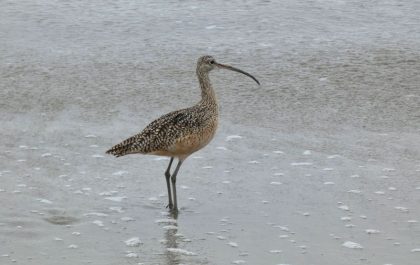“Very near terrestrial paradise,” that’s how Frederick Hastings Rindge, the 19th century industrialist and philanthropist who once owned the entire Rancho Topanga Malibu Sequit, described life here. And more than a hundred years later, it still is, isn’t it?
Mid July in the Santa Monica Mountains is a rare and magical thing. There may be minor inconveniences, like beach traffic, mosquito bites, and ants in the kitchen, but there is also morning fog on the ocean side of the mountains, hot afternoons when the air is filled buzzing of cicadas (we have 60 species, but none of them as loud or destructive as their Eastern cousins), cool nights filled with the scent of chaparral and with the summer triangle of stars—Vega, Deneb, and Altair—blazing overhead.
Unfortunately, there is still a major inconvenience for everyone this summer, and that’s COVID-19, an unwelcome guest who refuses to leave. COVID-19 numbers and hospitalizations continue to increase at a troubling rate, and a countywide indoor mask mandate could return as early as July 29, according to the Los Angeles County Department of Public Health. Blame variants BA-4 and BA-5 for the alarming increase in COVID-19 cases. These highly contagious versions of the virus have outcompeted other variants to become the dominant strains in the U.S., and they appear to be able to avoid the immune system’s defenses, even in people who have been vaccinated, boosted, or have already had Covid, although extensive evidence shows vaccines and boosters do reduce the risk of a serious or fatal case of the illness.
The increase comes at the same time as a new study that found that COVID-19 was the third leading cause of death overall in the United States between March 2020 and October 2021, accounting for almost 1 in 8 deaths. Only heart disease and cancer claimed more lives. Those numbers have declined sharply this year, but the data is sobering.
More sobering news comes from Washington daily, as the January 6 Committee continues to reveal the unimaginable, and the Supreme Court dismantles civil rights and environmental regulations. This month, they made the incomprehensible decision to cripple the federal government’s ability to reduce pollution and tackle climate change. The court’s extremist minority majority delivered the opinion that the Clean Air Act does not, in fact, pertain to clean air.
More draconian decisions are almost certainly coming soon, including a potentially crushing blow to the Clean Water Act, but that doesn’t mean that people, organizations, and entire states aren’t fighting back.
California just adopted a new law intended to hold the plastics industry accountable for their waste, reduce plastic waste, and increase recycling. That’s good news for the tiny endangered Western snowy plover on our table of contents page, a species that is increasingly impacted by plastic pollution in the ocean. There was more good news for endangered species. Earlier this month, a California court restored Endangered Species Act protections crippled by the Trump Administration and left in limbo by the current administration. We have more on both stories in our Newsbeat section, together with the exciting news that Los Angeles County now has a new 6,000 acre open space park. The effort to acquire the Temescal Rancho near Piru, reportedly the single biggest undeveloped piece of land left on the board, has taken more than 30 years. The deal was finalized this month, with the MRCA—Mountains Recreation and Conservation Authority—overseeing the new parkland.
The news cycle may increasingly feel like the convoluted plot of a third rate comic book movie, but just sometimes the good guys win a victory.
Stay safe, be well.




